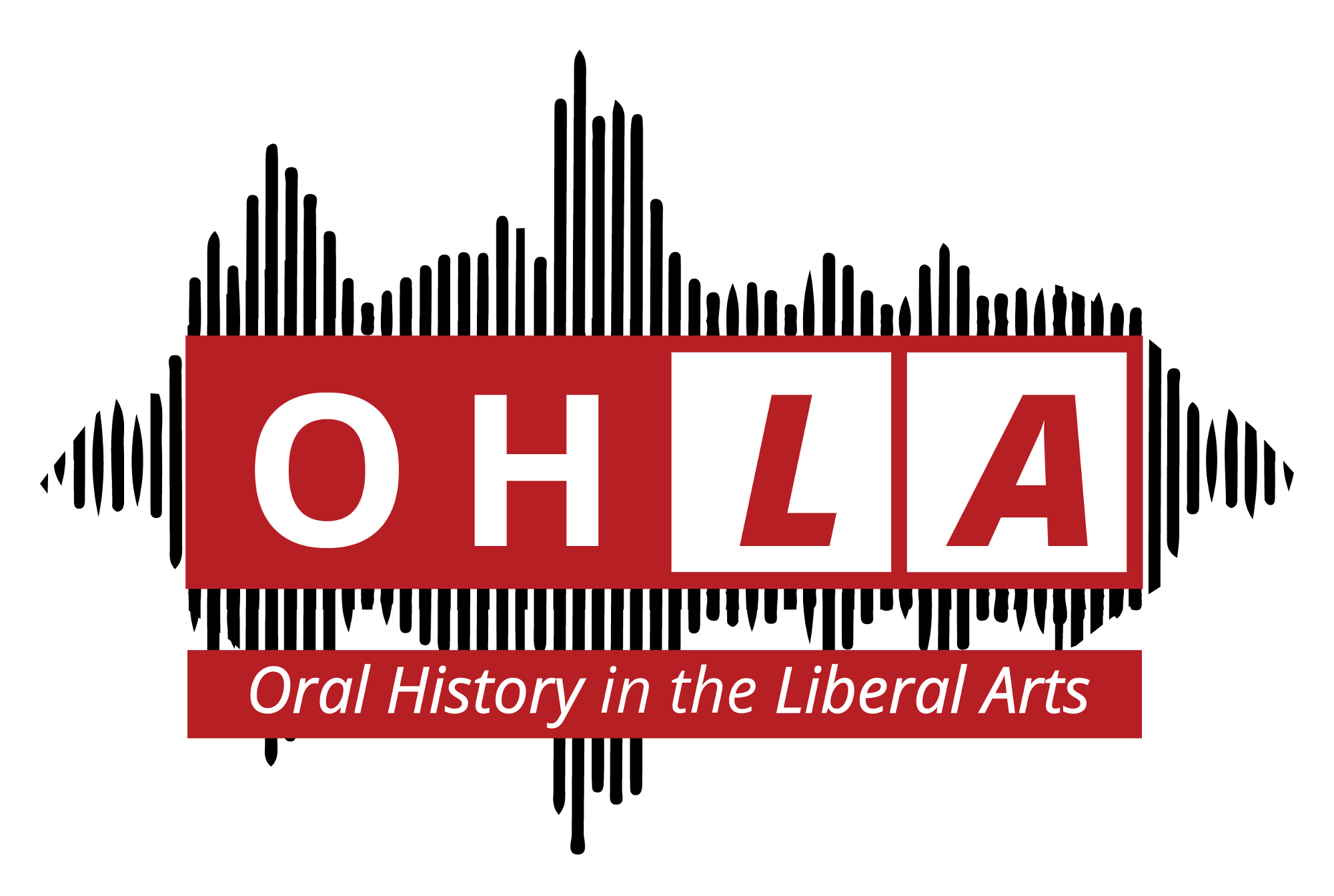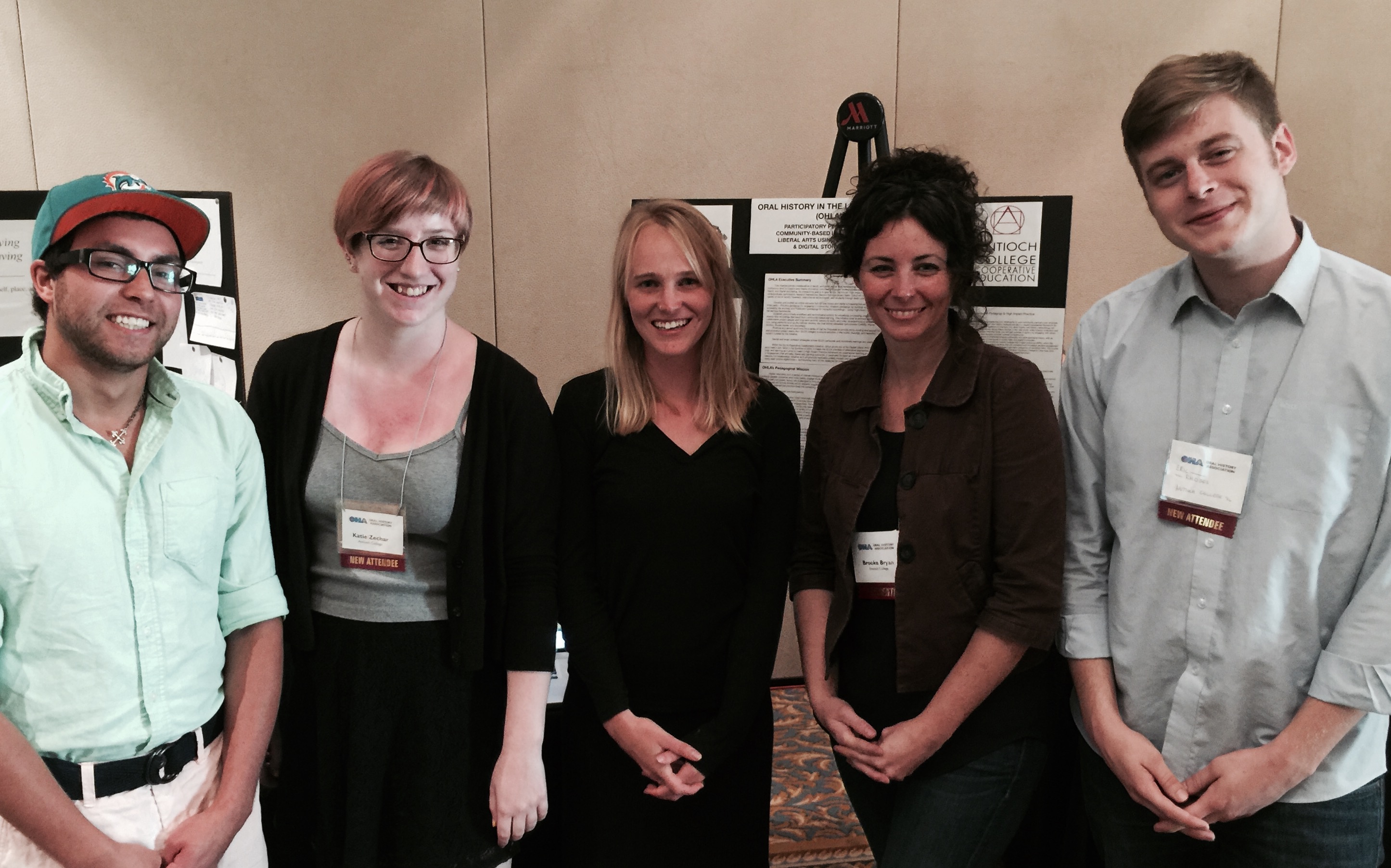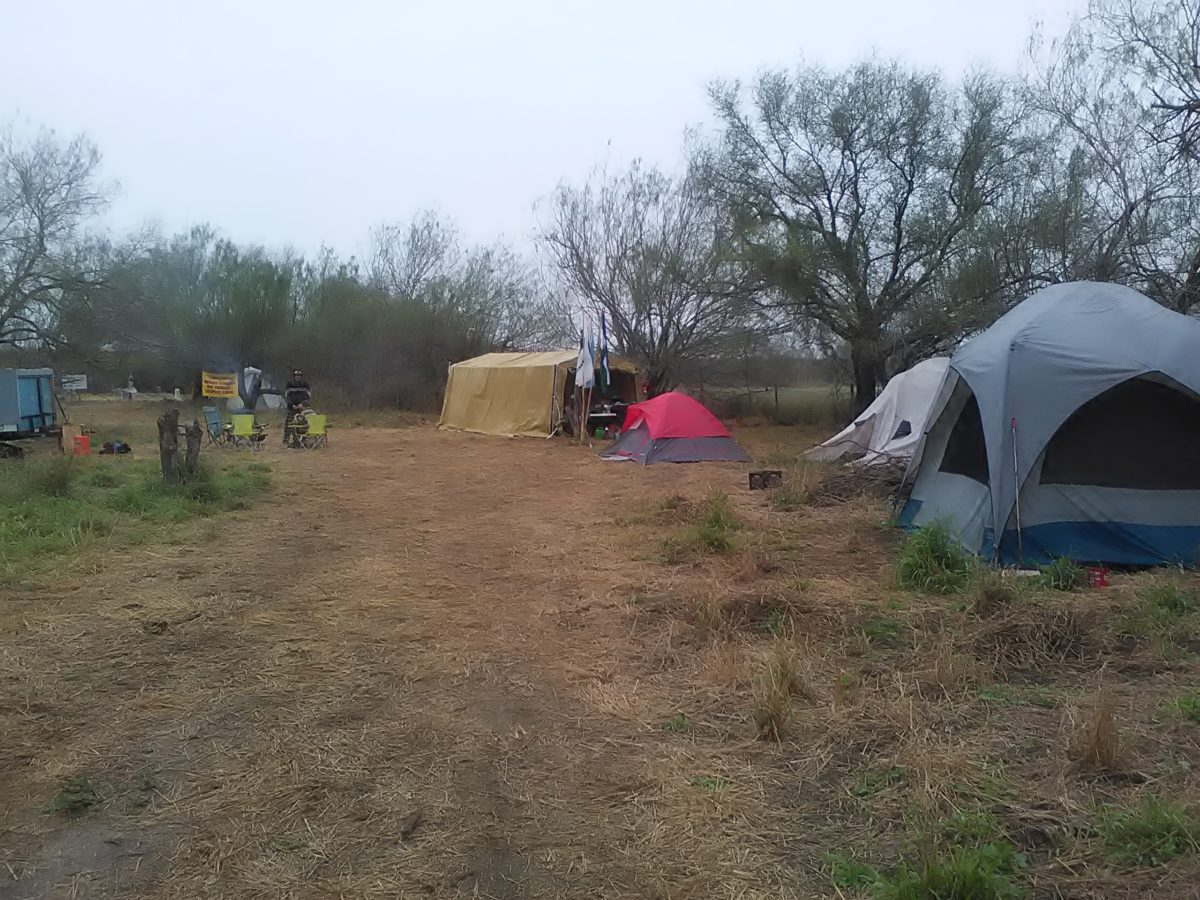With support from Antioch College and the Lloyd Family Fund, I ventured with 4 undergraduates to the 2015 Oral History Association conference in Tampa, Florida. The conference theme—Stories of Social Change and Social Justice—inspired proposals from 6 of my students taking WORK 425: Oral History Practicum.
As part of the WORK series of cooperative education courses at Antioch College, WORK 425 has a co-curricular, full-time work or research requirement that sees each student situated within a community — in this case clustered in the greater Dayton area. The co-curricular engagement with a mission-driven organization became the point of connection to the community, while they studied ethics, methodology, and research and digital publishing strategies throughout the hybrid course which met on Fridays.
As the final component of the junior year sequence at Antioch College, WORK 425 structures the final co-op, which is followed by campus study in which students immerse themselves in electives and final degree requirements while working on their senior projects. Since Antioch College’s curriculum expects all students to gird their senior projects with some kind of research, I’ve been working to foster student’s interest in seeing their final co-op terms as opportunities for fieldwork— fieldwork that directly engages ideas learned in the classroom, and a jump start on still-formative senior project ideas.
In WORK 425, the co-curricular community engagement provided real networks and connections to community members who became interviewees, while the curricular piece provided mentorship for development of research questions (and the IRB-approval process), coaching in tools for digital scholarship, and extended opportunities to discuss the very real ethical considerations of informed consent, access, and representation at the heart of community study.
For the four students who were able to attend the conference, it provided a valuable opportunity to present and receive feedback from national colleagues. (While all 5 in the course were accepted, two were unable to attend due to the obligations of their classroom study load at the time of the conference, which fell into the next quarter. OHLA’s Digital Archives Coordinator, a third year co-op student, joined the trip to help represent OHLA— contextualizing the student work, summarizing the American Association of Colleges & Universities “High Impact Practice” framework, and forwarding our pedagogical philosophy of using oral history as a participatory research methodology for experiential learning in the Humanities.)
The Turkish Community in Dayton, Ohio
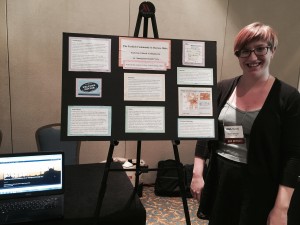
Antioch College student Katie Zechar ’16 presents her research into the Dayton Turkish community through a poster and a digital project built in ESRI’s Story Maps application with Soundcloud-hosted interview material.
Katie Zechar ’16, Antioch College
Katie’s project explores the ways in which the Dayton Turkish community has maintained their Turkish culture after moving to a new area, such as Dayton. The Welcome Dayton plan of 2011 to make Dayton an “immigrant-friendly city” will serve as a placement of time for this project, as I will look at the differences in cultural assimilation before and after Welcome Dayton. It will also explore the history of the Turkish people; from their displacement in the Soviet Union, to their discrimination, to their migration to other countries, eventually including the United States, to their lives in Dayton.

Antioch College student Eric Rhodes is conducting a series of interviews that will be indexed in OHMS for future researchers, and then layered over GIS maps in a WordPress website as an all encompassing digital project.
The Coloring of The Gem City: Redlining and the Legacy of Discriminatory Housing in Dayton, Ohio 1936-Present.
Eric Rhodes ’16, Antioch College
Eric’s research involves interviews with local scholars on redlining in Dayton, as well as those whose lives have been affected by discrimination. His oral histories are archived with Oral History in the Liberal Arts initiative, and will eventually be presented as layers on top of interactive GIS-enhanced maps. The goal of Coloring the Gem City is to serve as a publicly accessible history of area-specific discriminatory housing policies for local scholar-activists.
Eric is an undergraduate OHLA scholar in Spring of 2016, where he will be supported to conduct full-time research to finalize his project, working with Dr. Kevin McGruder, Antioch College history professor who is an expert on race and place.
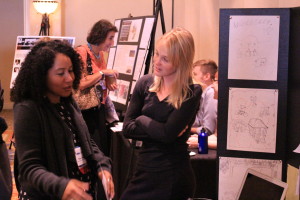
Charlotte’s work explores people’s connection to place, with real-time participant mapping, long form narrative storytelling, and interview clips.
Stages of Staying, Stages of Leaving, Stages of_______.
Charlotte Pulitzer, ’16, Antioch College
Charlotte’s work explores the ways in which individuals connect and disconnect to place. Using a social justice lens, her interviews look at the factors that either allow for community connection or dissuade one from “putting down roots.”
By interviewing individuals who have experienced forms of displacement, those who have run away from home, students, community leaders, and neighbors young and old, this project questions how a geographic location becomes part of an individual’s identity. Charlotte explores how cultural identities such as food, language, weather, family, friends, work, familiarity, accessibility to services, transportation, or length of time and experiences in one location relate to this topic.
We thank the Oral History Association for initiating poster sessions in the 2015 annual meeting, which provided a venue for emergent and still-formative work. The poster format was an engaging way to display multimedia projects, gain feedback and connections from a national network of colleagues, and provided an opportunity for the kind of real-time dialogue that helps new articulations of our work emerge.
Student fieldwork during WORK 425 was supported in part by Lloyd Family Co-op Student Fellowships In Peace Studies and World Law and Oral History in the Liberal Arts. Engagement at the conference was made possible by the Lloyd Family Fund at Antioch College— which supports student and faculty engagement in the areas of social justice, peace, and world law— and the support for faculty professional development at Antioch College.
